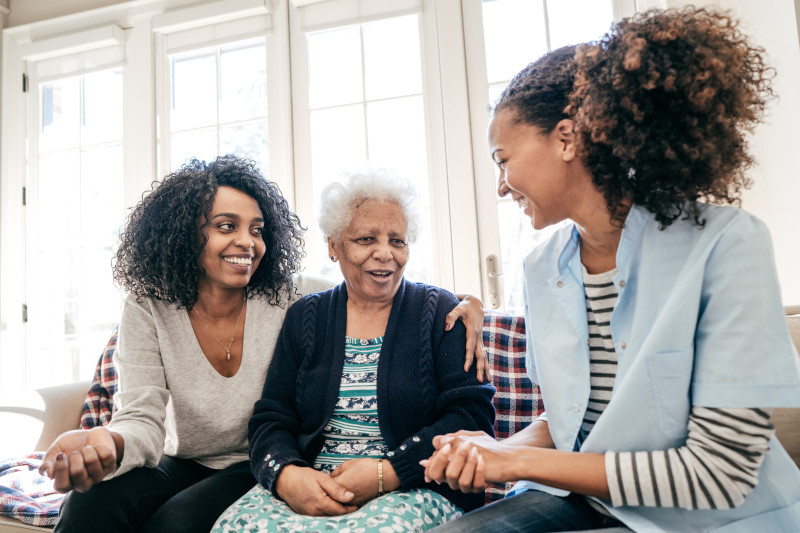AARP Hearing Center
For Caregiving Support, a New Registry Matches Central Texas Families with Local Pre-Med Students
AUSTIN, Texas – Family caregivers in Central Texas have a new matchmaking registry to turn to when they need help providing care to their loved ones.
An organization, with support from the AgeTech Collaborative from AARP and funding from the National Institutes of Health, Johns Hopkins University and other backers, aims to make assistance to caregivers easier and more affordable by partnering with students at the University of Texas at Austin who intend to enter the medical field.
Careyaya connects medical and nursing students with caregivers to bridge the gap in accessible support. The students – who undergo background checks and vetting -- perform only non-medical assistance, such as light grooming and toiletry help, but not assistance that involves feeding tubes. Many of those they provide care to are suffering from Alzheimer’s and other dementias.

“Basically, our platform matches undergraduate students looking to go into nursing and health-related careers and they need to gain patient-care hours,” said Roxy Garrity, the organization’s chief communications officer, who explained that medical schools typically require their applicant candidates to have about 2,000 patient-care hours under their belts.
Careyaya – which gets its name from “yaya,” which means grandmother in ancient Greek and caregiver in southeast Asian culture -- starts its aides at $18 an hour, and the students are paid directly from the families they support.
For the families, Garrity said that’s significantly less costly than what they typically may have to pay for paid assistance. Some industry reports find that find care companies can charge clients $30 to $40 an hour.
The median annual wage for home health and personal care aides was $16.12 an hour, or $33,530 annually, in May 2023, according to the U.S. Bureau of Labor Statistics. The Texas Legislature recently raised the minimum wage for those workers in the state to $10.60. AARP and other groups support raising the minimum to at least $15 an hour, said Kathy Green, director of state and federal strategy at AARP Texas.

In a November 2020 report, The Texas Health and Human Services Commission found that community attendants play an important role in avoiding more costly admissions to institutional care settings, such as nursing homes, and in reducing potentially preventable hospitalizations and emergency room visits.
“Community attendants in Texas and across the nation often face financial insecurity from low wages, lack of benefits such as health insurance, and high levels of part-time employment,” the commission wrote.
Careyaya started operations two years ago and is based in North Carolina. It has registries in some of the country’s largest college towns. Raleigh-Durham is its biggest market. Operations in Austin started last fall and is currently working with about 1,200 students here, said Garrity.
Families can get started with enrollment in the registry by visiting Careyaya.org. AARP Texas is not affiliated with the organization.
For information and resources from AARP about family caregiving, visit: aarp.org/caregiving
Mark Hollis can be reached at mhollis@aarp.org or 512-574-3739.

































































